Description
ABSTRACT
A Critical Examination of the Jurisdiction of Courts under the Lagos State Tenancy Law 2011
Gbenga Ojo*
This paper examines the provisions of the Lagos State Tenancy Law, 2011 with respect to jurisdiction of courts that can adjudicate on tenancy matters in the state. This is done against the background of the fact that jurisdiction of High Courts in Nigeria as superior courts of record is governed by the provision of section 272 of the Constitution of Federal Republic of Nigeria. Given that by the stated constitutional provision all Nigerian High Courts have unlimited jurisdiction in tenancy matters, the paper posits that it is not within the constitutional powers of the Lagos House of Assembly to alter or restrict the jurisdiction of the Lagos State High Court in that regard as the Lagos State Tenancy Law has presently done in its section 2(4). The paper concludes on the note that the provisions of section 2(4) of the Lagos State Tenancy Law 2011 is unconstitutional, null and void as it is ultra vires the legislative powers of the Lagos State House of Assembly.
INTRODUCTION
On 24th August, 2011, the Lagos State Tenancy Law came into operation.1Section 2 (1) of the law provides that a court shall have jurisdiction in respect of tenancy of any premises let before or after the commencement of the law. In the interpretation section,2 Court was defined to mean the High Court and the Magistrate court. It expressly excludes customary courts.3 The determinant of the jurisdiction of both courts is the annual rental value of the premises concerned in each matter. On the one hand, where the annual rental value of the premises does not exceed ten million naira, it is the Magistrate Court that has jurisdiction.4 On the other hand, where the annual rental value exceeds ten million naira, then the proceedings shall be brought in the High Court.5 The effect of this is that, proceedings shall not be brought in the High Court where the annual rental value of the premises does not exceed ten million naira. It is also correct to say that where the annual rental value of the premises exceeds ten million naira, Magistrate Court lacks the jurisdiction to entertain the suit.
The focus of this paper is to argue that the provision of section 2(4) is unconstitutional and consequently void to the extent of its inconsistency. This paper is divided into four parts. Part 1 focuses on legislative powers of the Lagos State House of Assembly to legislate on tenancy matters. Part 2 deals with the scope and limit of the jurisdiction of Magistrate Courts under the Tenancy Law of Lagos State, 2011. Part three analyses the scope and limit of jurisdiction of High Courts of Lagos State under the Tenancy Law. Part four interrogates the issue of the constitutionality or otherwise of section 2(4) of the Tenancy Law while Part 5 is the conclusion and suggestions for reform.
LEGISLATIVE COMPETENCE OF THE LAGOS STATE HOUSE OF ASSEMBLY ON TENANCY MATTERS
The Constitution of the Federal Republic of Nigeria, 19996 (hereinafter 1999 CFRN) vests the functions of the government in three arms or organs of the government.
* LL.M, BL. Principal, Gbenga Ojo and Co and Lecturer, Lagos State University, Ojo
- Tenancy Law No 14 of 2011 published in Lagos State Official Gazette No 37 of 26th August, 2011
- Section 47
- ibid
- See section 28(1)(b) of the Magistrate Court Laws of Lagos State 2009.
- Section 2(4)of Lagos State tenancy law 2011
- CAP C23, LFN 2004

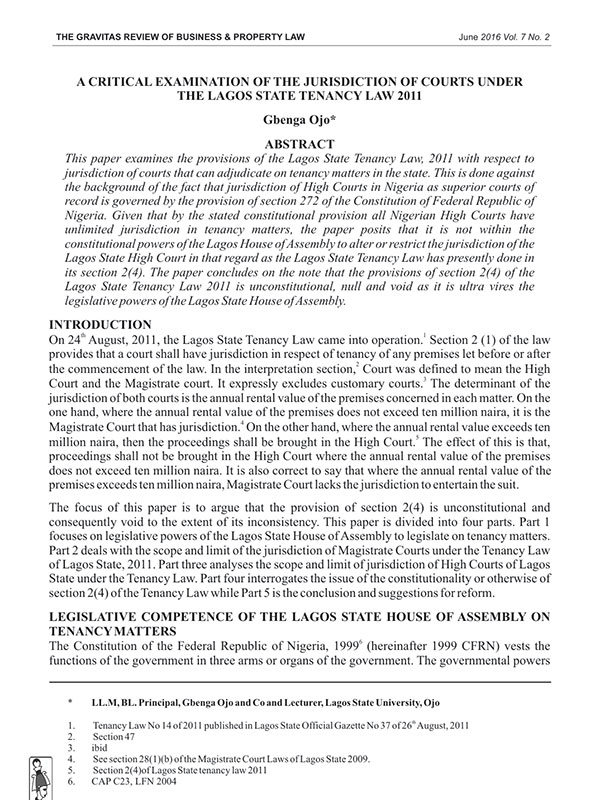
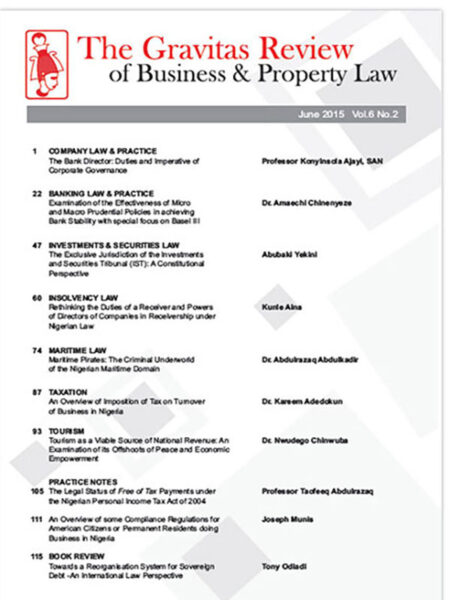
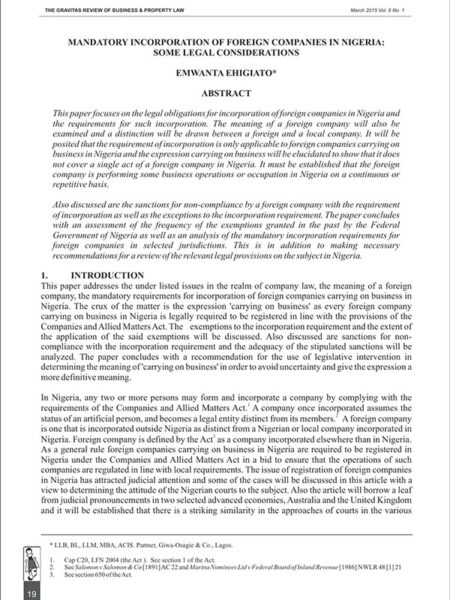
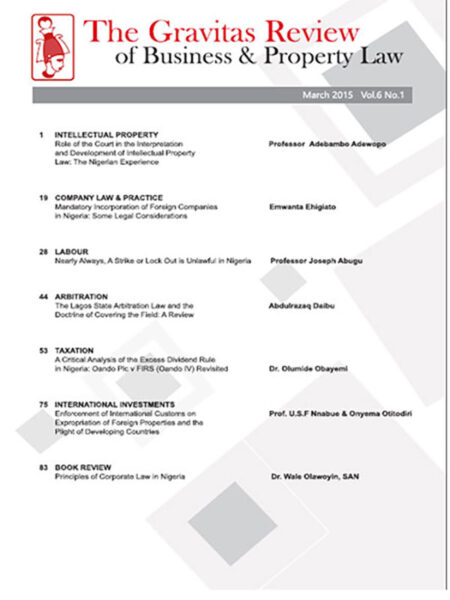
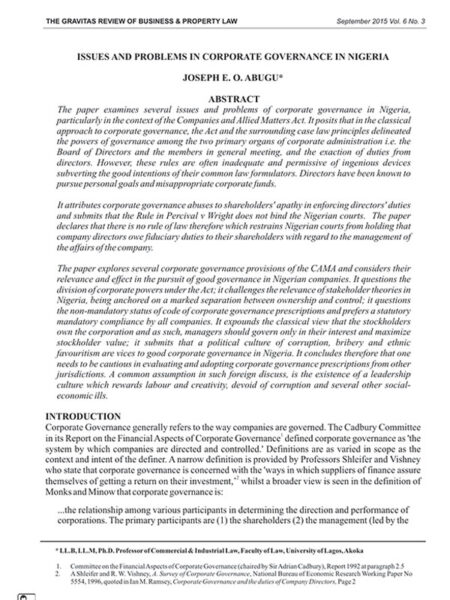


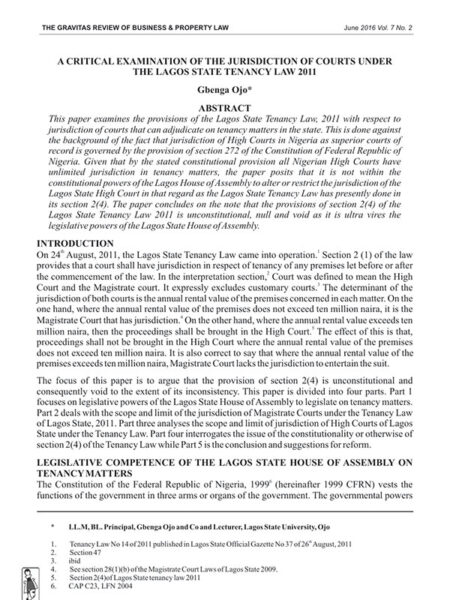
Reviews
There are no reviews yet.